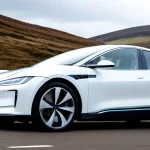Overview of Emerging Trends in the UK Automotive Market
In the rapidly evolving UK automotive market trends, industry forecasts reveal a dynamic shift driven by technology, policy, and consumer behavior. Current market dynamics indicate a strong emphasis on electric mobility, digital innovation, and sustainability. Expert analysis underscores the necessity for manufacturers and stakeholders to align closely with these evolving forces to maintain competitiveness.
Recent authoritative data and industry reports show that the UK market is poised for significant transformation. Forecasts project continuous growth in electric vehicle sales, along with increased investments in connected and autonomous technologies. Moreover, these trends reflect broader shifts in mobility preferences and regulatory frameworks.
Also read : How is the UK automotive industry contributing to job creation?
The future automotive outlook suggests a hybrid ecosystem where traditional vehicles coexist with emerging alternatives, underpinned by stringent emissions regulations and shifting consumer demands. Staying informed with the latest industry forecasts and adapting strategies based on expert analysis will be essential for any participant in this sector. This evolving landscape challenges manufacturers to innovate while responding promptly to market signals and policy changes shaping the UK automotive market’s direction.
Accelerated Shift Toward Electric Vehicles
Exploring the transformative growth in electric mobility
Topic to read : How Will Electric Vehicles Impact the Future of UK’s Automotive Industry?
The electric vehicles UK market is experiencing unprecedented growth, supported by rising EV adoption rates and expanding charging infrastructure. Industry forecasts predict electric vehicle sales will constitute a significant portion of new registrations within the next decade, driven by accessibility improvements and consumer demand for cleaner alternatives.
Government EV incentives play a critical role in this shift. Subsidies, tax breaks, and investments into charging networks reduce upfront costs and alleviate range anxiety, accelerating adoption. These policies aim to meet ambitious emission reduction targets while facilitating a smooth transition from internal combustion engines.
Advancements in battery technology are pivotal. Higher energy densities, longer life cycles, and faster charging capabilities enhance vehicle performance and affordability. These innovations not only improve user experience but also influence the future automotive outlook in the UK, positioning EVs as mainstream options rather than niche alternatives.
Understanding these dynamics is essential. The interplay between government initiatives, technology progress, and consumer uptake defines the trajectory of the UK automotive market trends, signaling a decisive move toward sustainable electric mobility.
Regulatory Changes and Policy Impacts
Navigating evolving regulations shaping the UK automotive market
Recent UK automotive regulations focus heavily on stringent emissions targets aimed at reducing carbon output and promoting greener technologies. Industry forecasts emphasize the introduction of near-zero emission requirements for new vehicles by 2030, compelling manufacturers to innovate rapidly to comply with these benchmarks. This shift is central to the future automotive outlook, reflecting the UK government’s commitment to net-zero goals.
Post-Brexit trade agreements have introduced new complexities in regulatory alignment, affecting import/export logistics and compliance standards. Expert analysis highlights the importance of adaptive strategies for manufacturers navigating these shifts to maintain market stability.
Beyond emissions, anticipated future legal requirements will likely include enhanced reporting standards and greater scrutiny of vehicle lifecycle sustainability. Government policies increasingly incentivize cleaner production methods and penalize non-compliance, creating a landscape where regulatory adherence is crucial for competitive advantage.
Understanding the interplay between government policies and market forces equips stakeholders to anticipate challenges and seize opportunities. This regulatory environment is pivotal in driving innovation and sustaining progress within the UK’s evolving automotive sector.






